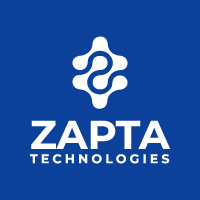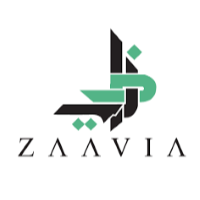
There are 263 Companies in Pakistan
that provide Azure Platform Services!
Pakistan’s Information Technology (IT) sector has a promising future with its talented youth and is poised to become the largest export industry of the country, according to the Pakistani High Commissioner to the UK.
According to Statista, the IT Industry in Pakistan is predicted to reach $2.75 billion in 2025, with the biggest segment of it being IT Outsourcing, worth $970.62 million the same year.
Discover Top IT Companies in Pakistan specialized in Azure Platform and other related services. Find the best IT service providers for your projects.
Azure Platform, developed by Microsoft, stands as a versatile cloud computing platform known for its ability to empower organizations with a wide range of cloud-based solutions. It offers a comprehensive suite of services and tools designed to support businesses in their digital transformation journey.
Handpicked companies • No obligation to hire • 100% risk-free
Featured Companies in Pakistan
This month, the following Azure Platform companies managed to provide an outstanding service and support. It's worth taking a look.
Explore Top Azure Platform Companies in Pakistan
Use the advanced filter to find companies near you or refine the results Last updated in: January, 2026
Techgropse is a leading Mobile App and Web Development Company, dedicated to turning innovative ideas into remarkable digital solutions. 500+ Clients

Eagle Alliance Technology Pvt. Ltd Verified Company
Rawalpindi, Pakistan Head office in: Pakistan
Eagle Alliance Technology: Igniting Success Through Innovative Tech Solutions.
Fire Bee Techno Services is an ISO-Certified Blockchain and AI Development Company In india and across the world with 13+ years of experience.
Award-Winning & Top-Rated ⭐️⭐️⭐️⭐️⭐️ Software Design & Development Company | Custom Web, Mobile & AI Solutions | 700+ Projects | 250+ Global Clients🌍
Intuitive Apps, Custom Software, Websites & Cloud Services with captivating UI/UX—tailored to meet your business needs. Are you ready? Let's talk!
Software design and development providing staff augmentation services
Best Mobile Apps Development Company in Dubai
Astoe Company is a leading digital company that specializes in providing innovative software solutions and optimization services.
Where Innovation Meets Excellence
Award-winning Digital Marketing & Custom Software Development Company of Pakistan offering software, Web development, and digital marketing services.
Hikenseek is a leading provider of innovative digital solutions, specializing in web development, graphic design, digital marketing.

NexCrafters Ltd Verified Company
Faisalabad, Pakistan Head office in: United Kingdom
Software & Product development agency specializing in generative AI, mobile apps, web platforms, custom software, and UI/UX design.

Gujranwala, Pakistan Head office in: United States
K Tech Clans provides top-tier web and mobile design, development, and marketing services with a seamless, balanced approach.
ZH IT SOLUTIONS is an IT Services provider Company. We have a team of Professionals, Certified Developers, Designers, and Digital Marketing Pros.
Services:
Filter Azure Platform Companies in Pakistan by Cities
Find the right tech company near you or from a specific city. Some of the best companies might be located in smaller cities.
Find more Azure Platform companies around the world
TechBehemoths is the world's most advanced and user-friendly platform to match IT Companies with real clients without hustle.
The ICT Industry in Pakistan: Data & Insights
Pakistan’s Information Technology (IT) sector has a promising future with its talented youth and is poised to become the largest export industry of the country, according to the Pakistani High Commissioner to the UK.
Based on this information, it is also important to mention that the average salary in the IT industry in Pakistan is estimated at around 712.52 USD/mo, making the country one of the most accessible and competitive in the region in terms of prices.
According to Statista, the IT Industry in Pakistan is predicted to reach $2.75 billion in 2025, with the biggest segment of it being IT Outsourcing, worth $970.62 million the same year.
Why Work With Pakistan-based IT Companies
Pakistan-based IT companies and web agencies are in the full development process and promoting their services mainly to foreign clients using the latest technologies. Even though Pakistan is probably the newest player in the IT sector in the region, it has revealed that it has huge capacities with several tech startups and new web agencies that continue to grow. In this way, there are more than 1500 IT companies in Pakistan with 10,000 professionals enrolling in the sector each year.
What to Be Aware of When Working With Pakistan-based IT Companies
The relatively low number of IT companies in Pakistan is motivated by two factors: First, as mentioned previously is that the web agencies based in Pakistan are new in the region and are in a full development and promotion process. The second reason is that professionals in the country are focused more on freelancing than on entering a corporate environment and developing a digital business system, based on a report from the NY Times.
Considering both indicators, it should be noted that the Pakistan-based companies don’t have rich experience in the market and thus, a developed business culture, which may be a challenge for potential foreign clients.
How Reliable Are IT Companies From Pakistan?
The young and inexperienced behavior of Pakistan-based IT companies and web agencies is compensated for by the high capacity and low prices on the market that they can provide. This makes Pakistan-based companies and web agencies, as well as freelancers to have a balanced reputation on the global market, making the selection process easier for potential clients.
How the Pakistani IT Industry Relates to the Neighboring Countries
Pakistan is trying to make its place in the global setup. Perhaps, this is the reason why the country’s freelancers offer rates 30% to 50% less than those offered in India. According to Statista, India’s IT market size is $28.85 billion, while Pakistan’s is just $2.75 billion. While India’s population is seven times higher, its investment in the startup ratio is also 30 times greater. The ratio of the size of the economy is 1:10, while the market size of startups is 1:100. This can be improved as Pakistan’s startup market can grow up to 5 times.
The Global Competitiveness Index and Ease of Doing Business Index of Pakistan show that the country has some giant strides to make. India has 6 big IT companies, and every company has at least a $10-billion revenue a year. Google, IBM, and Microsoft have their local office in India, promoting the country’s industry through research and development. On the other hand, Pakistan has not seen business tycoons venture into the IT industry. Pakistani businessmen love to invest in real estate and gold.
What is Azure Platform and what are its benefits for your projects?
Azure Platform, developed by Microsoft, stands as a versatile cloud computing platform known for its ability to empower organizations with a wide range of cloud-based solutions. It offers a comprehensive suite of services and tools designed to support businesses in their digital transformation journey.
There are more than 2722 IT companies that specialize in providing Azure Platform services to businesses across the globe. These companies serve as strategic partners, helping organizations leverage Azure to achieve their goals. Notable IT service providers in this domain include Accenture, Capgemini, Infosys, and Deloitte. They offer a spectrum of services, from Azure consulting and implementation to ongoing management and support.
Azure Platform service providers employ a combination of tools and technologies to deliver effective solutions. This may include Azure DevOps for continuous integration and deployment, Azure Monitor for performance tracking, and Azure Resource Manager for resource provisioning and management. It's essential to differentiate between Azure and Azure Platform: while Azure refers to the cloud platform itself, Azure Platform encompasses the set of services, solutions, and expertise offered by IT companies to optimize Azure for specific business needs.
Azure Platform is not limited to a single service but comprises a rich ecosystem of interconnected offerings. Related services include Azure Virtual Machines for scalable computing, Azure Kubernetes Service for container orchestration, Azure AI for artificial intelligence capabilities, Azure Data Services for robust data management, and Azure Security Center for enhancing security posture.
Selecting the right IT company for Azure Platform services is a critical decision. To make an informed choice, consider factors such as the provider's experience with Azure, client references, industry expertise, and the range of services they offer. Assess their ability to align Azure solutions with your business objectives, scalability requirements, and ongoing support capabilities.
Azure Platform services find applications in a wide array of projects, including:
-
Enterprise Resource Planning (ERP) Systems: Implementing scalable ERP systems to streamline business processes.
-
E-commerce Solutions: Building and managing high-performance e-commerce websites and platforms.
-
Big Data Analytics: Leveraging Azure's data analytics tools for data-driven insights.
-
IoT Solutions: Developing IoT applications for device management and data analysis.
-
AI and Machine Learning Projects: Building intelligent applications for predictive analytics and automation.
-
Cloud Migration: Migrating on-premises infrastructure to Azure for cost savings and scalability.
-
Cybersecurity Initiatives: Strengthening security through Azure's robust security services and monitoring capabilities.
-
Hybrid Cloud Deployments: Implementing a hybrid cloud strategy for data backup, recovery, and business continuity.




















